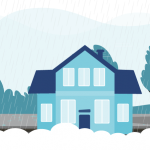Can your engineering specialty affect your insurance rates?
May 20, 2022

When it comes to Professional Liability Insurance, sometimes it feels like the odds are stacked against you. You need insurance to cover expenses if you get sued, but if you’ve ever tried to buy it, you know the costs can be expensive. In fact, depending on your specialty, Professional Liability Insurance might even be one of your firm’s highest operating expenses.

But why is insurance so much pricier for some engineers than others? The truth is: despite the similarities between different engineering disciplines, there’s no one-size-fits-all policy for any one profession. Your insurance premiums are determined by a variety of factors that aren’t always in your control, like your size, location, revenue, operations, claims history, and even your engineering specialty. That’s right: even if you don’t necessarily work with sensitive materials or million-dollar projects—even if you don’t necessarily consider yourself high-risk—you could still be paying more based on the average claims costs of the field you work in.
Curious to know where you fall on the scale? Here are five engineering disciplines and how they could affect your insurance premiums.
RELATED: Here’s Why an Engineer Might Get Sued and What You Can Do About It
Disclaimer: Please note that the information provided herein is general in nature and will not apply to all businesses, workplaces, specialities, and situations. Insurance premiums vary by provider. The specific terms of your policy will always apply. For more guidance, please consult a licensed insurance representative.
Electrical:
While electrical engineers can have a higher frequency of claims, they’re smaller, less severe, and easier to manage. This is largely because the damages and repair costs associated with lighting design and residential power distribution are typically low. Maybe the leading edge technology you recommended isn’t working as intended. Or perhaps the sensors you designed for an alarm system keep going off. While these issues can be frustrating for the clients, they’re usually caught and repaired right away before they can spiral into something worse.
Of course, there are exceptions to the rule. For engineers that work on substations or high power projects, in mining, or with automated equipment, there’s always potential for bodily injury and property damage. Still, electrical engineers aren’t generally considered high-risk and usually end up on the lower end of the spectrum for insurance premiums.
Geotechnical:
While geotechnical engineers don’t have too many claims, the few they do have are high in severity. This is primarily due to the level of uncertainty involved in accurately determining subsurface conditions. Despite advancements in sampling and testing technologies, you might not always be able to account for every sinkhole, boulder, or soil movement. Unfortunately, unexpected site conditions can quickly extend timelines, rack up repair costs, and lead to expensive claims if your client decides to sue.
Additionally, most issues surrounding soil failures or bearing capacity don’t usually become apparent until construction is well underway or even years after project completion. And there’s often no easy fix—the further along a project is, the more work you have to undo, and the more expensive the repairs will be. After all, it’s much costlier to retrofit, deconstruct, and/or reconstruct a building than it is to change a faulty light system or reinstall defective equipment. Claims costs can easily reach six figures, especially if there’s injury or property damage or if the structure has to be knocked down entirely.
For these reasons, geotechnical engineers have the most difficulty even obtaining insurance. And if they can find an insurance company that’s willing to take them on, coverage is often limited and very expensive.
Structural:
While structural engineers may not have claims that are as severe as geotechnical engineers, they do tend to be more frequent and higher on the severity scale. And with average claims costs close to six figures, they also have a tough time finding coverage at a reasonable price, with premiums even soaring into the tens of thousands. Why? In many cases, design issues take years to uncover and can lead to catastrophic damages, such as building envelope failure, roof collapses, and personal injuries.
Structural engineers also suffer some of the worst litigation fees. Even if you’ve done nothing wrong, people will question the structure for design flaws and construction errors before anything else if a building shows signs of wear and tear. And in today’s increasingly litigious society, people are encouraged to name any party that could bear even the smallest responsibility for a loss. But you’ll still have to defend to clear your name and prolonged litigation from meritless claims can quickly drive up legal costs.
You’re particularly at risk if you take on residential projects, like condominiums or custom or high-end homes. Homeowners can be hard to please and are much likelier to lawyer up if they see a crack or leak. Consequently, residential work is seen as higher risk—and more expensive to insure—than a commercial project, like an office or a warehouse, where the project owner might be more experienced with the design and building process.
Mechanical:
As one of the broadest engineering disciplines, mechanical engineers can be hard to classify insurance-wise. In general, claims are smaller and less severe, but high in frequency. Like structural engineers, mechanical engineers tend to be named in a lot of lawsuits, particularly those working on assembly buildings or hospitals. Often, plaintiffs who fail to maintain their equipment allege that the failures or breakdowns were caused by a design flaw.
Additionally, mechanical engineers who specialize in HVAC might be implicated in more claims surrounding construction delays. Undersized equipment and system failures can quickly extend project schedules and budgets, especially if errors are discovered closer to the deadline and building commissioning doesn’t go well.
Overall, as long as there are no safety-critical systems or equipment, insurance companies generally aren’t too wary of mechanical engineers. Insurance premiums may be on the higher side, but not as pricey as they are for geotechnical or structural engineers.
Civil:
As construction projects have grown in size and complexity over the last few decades, civil engineering claims have increased in cost and severity. Whether it’s a bridge, a pipeline, or a power plant, projects are often large-scale and high-value, with many involved stakeholders, longer supply chains, and millions of dollars at stake. With so many parties involved, it can be hard to ensure quality control. Specialized machinery or equipment might be sourced and transported from all over the world, increasing the possibility for delays and miscommunication, as well as repair costs if items are damaged in transit or misassembled.
Additionally, since civil engineers work on structures that are intended for the general public, the potential for damages is high since more people could be affected by an error.
What does that mean for you?
The reality is: claims are inevitable in a high-stakes profession like engineering. And when it comes to insurance costs, it’s not necessarily about who has more claims—it’s about who has worse claims. While all engineering disciplines are risky, some specialties might just be prone to more severe claims given the nature of the work involved.
If insurance isn’t mandatory in your field, you might be tempted to cut costs by getting a cheaper policy, only carrying as much coverage as you need for a specific project, or forgoing it altogether, especially if you’re just consulting on the side or starting your own business.
But operating without insurance—or with generic insurance that isn’t tailored to your needs—is a risk you should never take. You never know when you’ll be hit with a claim and if you are, you’ll have to shoulder the costs out-of-pocket. Plus, it only takes one claim to put your reputation in the gutter. And once you have one, it’ll be even harder for you to qualify for insurance in the future.
RELATED: 3 Common Engineering Mistakes—and How You Can Avoid Them
PROLINK’s blog posts are general in nature. They do not take into account your personal objectives or financial situation and are not a substitute for professional advice. The specific terms of your policy will always apply. We bear no responsibility for the accuracy, legality, or timeliness of any external content.




